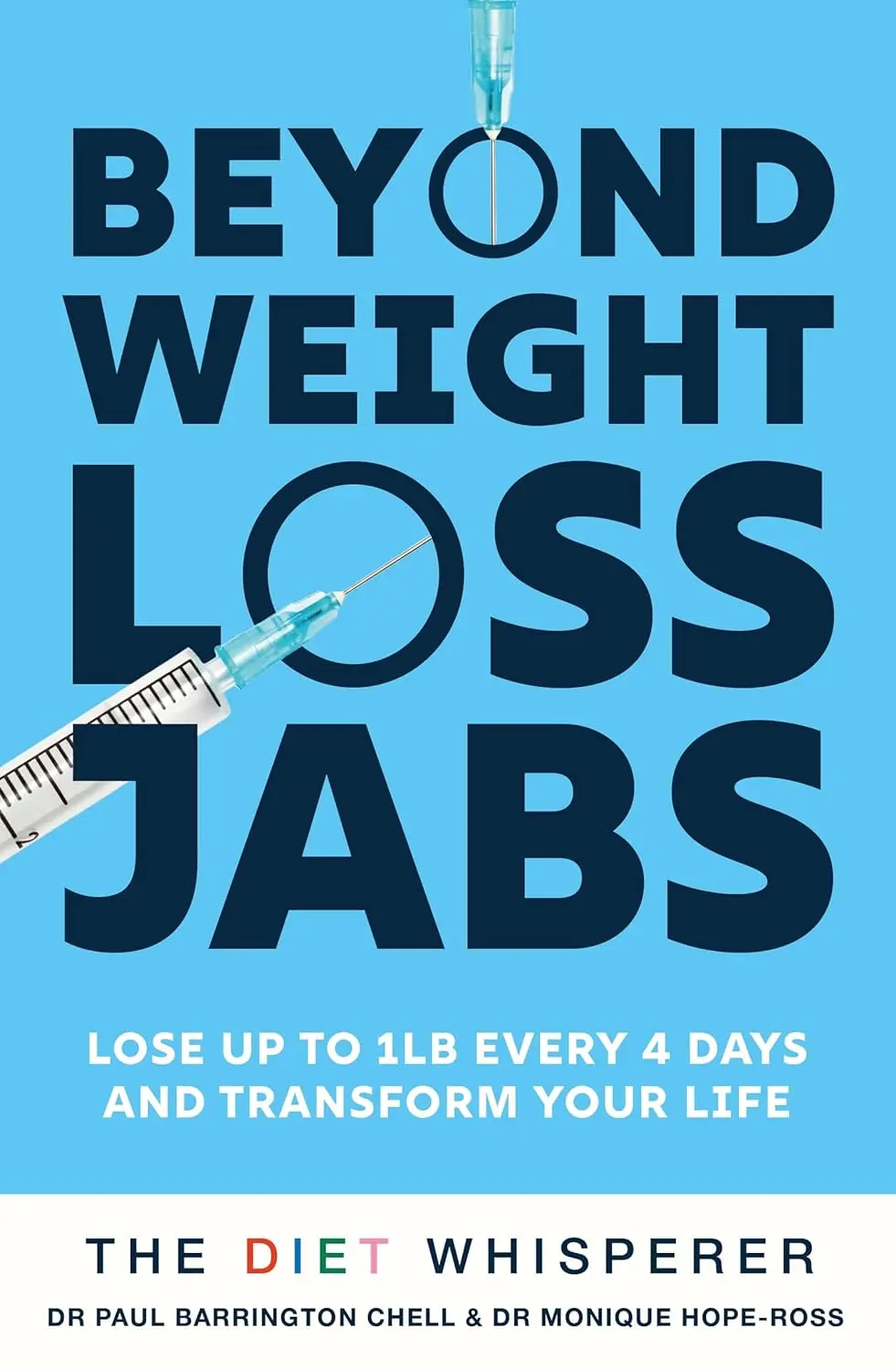The Benefits of Keeping a Weight loss journal
Published: 20th April 2022
Last Updated: 8th January 2026
Dr Monique Hope-Ross and Dr Paul B Chell
It is a daunting task to start your weight loss journey, and you will benefit from all the help and support that you can garner. A supportive partner, family, and friends are the keystones of success. Another important element of success is self-monitoring. Self-monitoring means recording your actions: what you eat, when you eat, and when you fast. Self-monitoring means measuring your weight, your waist, and your hips and looking at your progress over time. It is a sure-fire way of helping you to achieve your weight loss goals. This is where a weight loss journal comes in.
A Weight Loss Journal is a Proven Way of Increasing the Success of Your Weight Loss Journey
Self-monitoring, and using a journal, is the bedrock of behavioural treatment for weight loss. A weight loss journal, whether in digital or analogue form, provides a repeatable, easy way of self-monitoring. Numerous studies have confirmed the benefits of self-monitoring with a diary or journal in tracking weight loss progress.1 During a 16-week weight loss program, the chance of substantial weight loss increased by 8% for those who completed their weight loss diaries.2
Another recent study looked at the effect of self-monitoring on success in a weight loss trial.3 The most successful people were those who had the most frequent diary entries and who completed their diaries more times during the day than others. As time went on, the time taken for diary entries reduced from 23 minutes per day to 16 minutes at the end of the 6-month trial. People who lost over 10% of their body weight were journalling approximately three times per day. As the study progressed, less time was needed for journalling.
Setting Your Goals
To help you succeed in your weight loss journey, it is a great idea to set goals.4 This is a proven way of increasing your chance of permanent weight loss, so even if you are sceptical, we urge you to do it. Journalling helps you to make and record your goals, and for this reason alone, a weight loss journal becomes a useful exercise.
Goals will help to drive your motivation and writing them down is a powerful tool. Looking at them makes your goals feel real, more tangible, and more achievable. Whenever your enthusiasm fades or you feel challenged by your weight loss journey, revisiting your goals will give you added support and increase your will to carry on. The best advice that we can give you to help in your weight loss journey is to set goals, write them down, and refer to them should any doubts arise.
Tracking Your Progress
Once you have noted down your starting measurements, repeating those measurements over time will give you a clear picture of your weight loss journey. A written record really shows you what is happening over time.
Keeping a diary or journal helps you to become aware of your current behaviours. When you record what you do, you can judge the impact of what you eat, when you eat, and so much more. You can see what works for you and what doesn’t. Then you make the necessary adjustments, and it will be easier to stay on course.
You may identify triggers for unwanted behaviours. You may look at your diary and find that you snack when you are feeling low; you may be an emotional eater or eat out of boredom. Once you identify your pattern of snacking from your diary entries, you can plan a different response to avoid the snacking.
Achieving successful weight loss means changing your habits, changing when you eat, what you eat, and many other aspects of your life, such as improving your sleep patterns. Changing any habit is difficult, requiring adjustments to your actions, and self-monitoring is an important part of those adjustments. Habits take around six weeks to change, and your diary will help you to track your progress.
It is universally accepted that people routinely underestimate the amount of food that they eat.5 They snack at eleven, eat chocolate in front of the TV, or nibble from the fridge before going to bed. This is all easily forgotten. But keeping track contemporaneously helps to set the record straight. Committing to a diary means that there is a good chance that you will record all your food and snacks. You will then be able to make healthier choices by seeing your behaviour in black and white.
Helping You to Stay Motivated
Seeing your progress in your journal can be highly motivational. It’s a record of where you were and how far you’ve come. Every entry reminds you of your efforts and progress. This can be very useful when motivation might wane; just seeing your goals, your starting point, and where you want to get to can spur you on and help you overcome any hurdle. Remember, to err is human. We all struggle at times, and your weight loss journal will help you along the way.
Figure 1. Diet Whisperer Weight Loss Journal 100% of income of our journal income goes to charity
A weight loss journal, or diary, is a way to track what you eat and drink each day. You can also record other behaviours, such as fasting, sleeping, and snacking. Weight loss journals come in different shapes and sizes: digital, analogue, and personal digital assistants. The paper diary has been the subject of the most scientific studies.6 There is little to choose between the different forms of weight loss journals, and this really comes down to your personal preference. Our weight loss journal is a paperback, and we’ve ensured that it is super easy and quick to complete, small enough to take to work, and is hopefully a very practical aid for your journey.
Setting weight loss goals
It’s a good idea to be very particular about setting your goals, and the better the goals, the more likely you are to be successful. No one can make goals for you; they need to reflect your needs, your situation, and your desires. Goals that are specific, measurable, achievable, relevant, and time-restricted (SMART) will serve your needs well. A goal such as “I will lose 12 kg in 12 weeks” is a strong goal that will shine like a guiding light throughout your journey. Vague phrases such as “I want to look better” or “I want to lose weight quickly” are not the best goals for helping you.
Tracking Daily Food Intake
Most people are not very good at remembering how much food they eat. Many studies have shown that people routinely underestimate the frequency and the amount that they eat. The Sky Racing Team, under Sir David Brailsford’s stewardship, was aware of this human frailty. All the team riders had to photograph everything that they ate throughout the day and send this to Sky HQ. It is not that we deliberately lie; it’s just our natural optimism bias underestimates how often and how much we eat. Ideally, you should record your food at the time of the meal. It’s easy to regard this as unimportant, but it is time well spent. If you are unable to complete your diary during the day and plan to do this at the end of the day, photographing your meals or alternatively a voice recording may do the trick for you.
In your diary, you record the timing of your meals, as well as your EatSpan—the time from the first morsel crossing your lips in the morning to the last one at night. Black tea, black coffee, and water do not count as a snack or a meal and do not affect your EatSpan. Reducing EatSpan alone is an effective weight loss strategy, even if your food intake remains the same. The optimal EatSpan is under 6-8 hours. Recording your FastSpan allows you to see how your intermittent fasting lengthens as your weight loss journey progresses.
Drinking enough water is always an important priority but is even more important when you are losing weight. On average, 20% of your daily water consumption comes from your food, and as food is reduced during your weight loss journey, adequate water consumption is important. Tracking your water intake and ensuring that it is optimal contributes to your success.
Recording Your Measurements
Documenting your metrics allows tracking of your progress. Comparing your metrics over time provides you with an instant assessment of your improvements. Our weight loss journal has graphs where you document the changes as the weeks go by, showing exactly how your journey is progressing.
Many studies show that people are more successful if diary entries are regular and frequent. You should aim to have a daily entry in your journal and ideally an entry after each meal.
When you measure your metrics, make sure that you do this at the same time of day. Ideally, weigh yourself first thing in the morning, preferably with no clothes (but otherwise always wear the same clothes), after going to the bathroom, and before you have had anything to eat or drink. Your waist measurement should be done at the same time.
Not only does self-monitoring help with losing weight, but it also helps in the long-term maintenance of weight.
MAKE IT FUN!
A weight loss journal should be for you, a deep insight into one of the most important journeys of your life. One where you reset your metabolism, reverse disease, and lose weight. It is a personal account of who you are, where you were, and where you have reached. Celebrate it and make it fun!
Buy the weight loss journal on Amazon
Whisperings
- Obesity and metabolic disease are the greatest global challenges to health.
- A weight loss journal is a proven way of improving the success of your weight loss journey.
- Self-monitoring is of proven benefit in weight loss.
- A weight loss journal allows self-monitoring.
- Setting powerful, realistic goals increases the success of your weight loss journey.
- A weight loss journal helps to identify unhealthy behaviours and the triggers associated with them.
- Identifying unhealthy behaviour patterns allows planning of alternative responses
- People who journal every day, after each meal are more successful in their weight loss journey, than those who do not.

